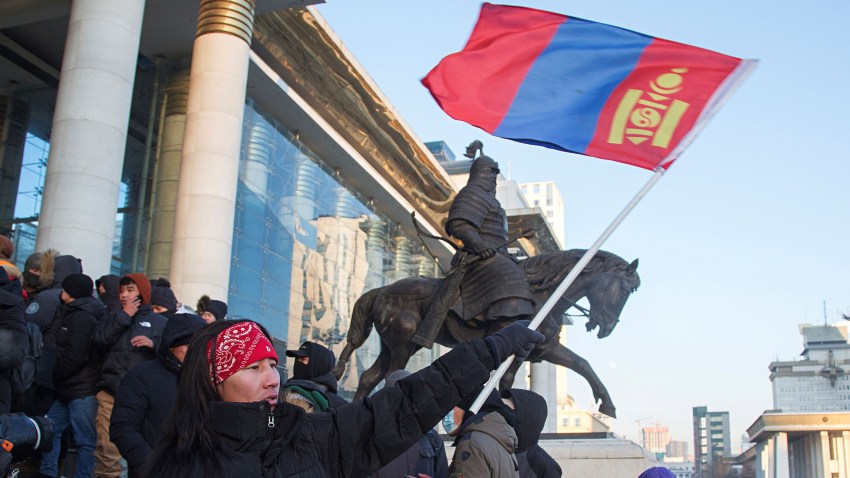Mongolia ended 2022 with a bang when protesters stormed the country’s seat of government in the capital, Ulaanbaatar, on Dec. 5, before proceeding to camp out on the public plaza facing it for two weeks. Even though the demonstrations ultimately fizzled out, the corruption allegations that triggered them continue to rankle. Combined with political and economic challenges at home and increasingly complex relations with its two neighbors, China and Russia, 2023 is shaping up to be a challenging year for Mongolia.
Last month’s protests were sparked by revelations about grand corruption at Erdenes Tavan Tolgoi, a state-owned coal operator, and fed off resentment that had already fueled a previous round of demonstrations in April 2022. The protests signal mounting frustration, particularly among young people.
The events of December made international headlines, but they overshadowed what may have been the greatest surprise in Mongolian politics last year: The inability of the ruling Mongolian People’s Party to capitalize on the total dominance it gained through parliamentary elections in 2020, when it won 62 out of 76 seats, as well as the presidential election in 2021. In the aftermath of those election victories, some observers worried that the MPP would come to not only dominate but perhaps control domestic politics, especially since the rival Democratic Party has been in disarray for years and the upstart National Labour Party has been unable to make significant inroads due to its wavering between market-liberal positions and social progressivism as its main policy emphasis. But instead of dominating, the MPP government under Prime Minister Luvsannamsrain Oyun-Erdene seems to be teetering.

